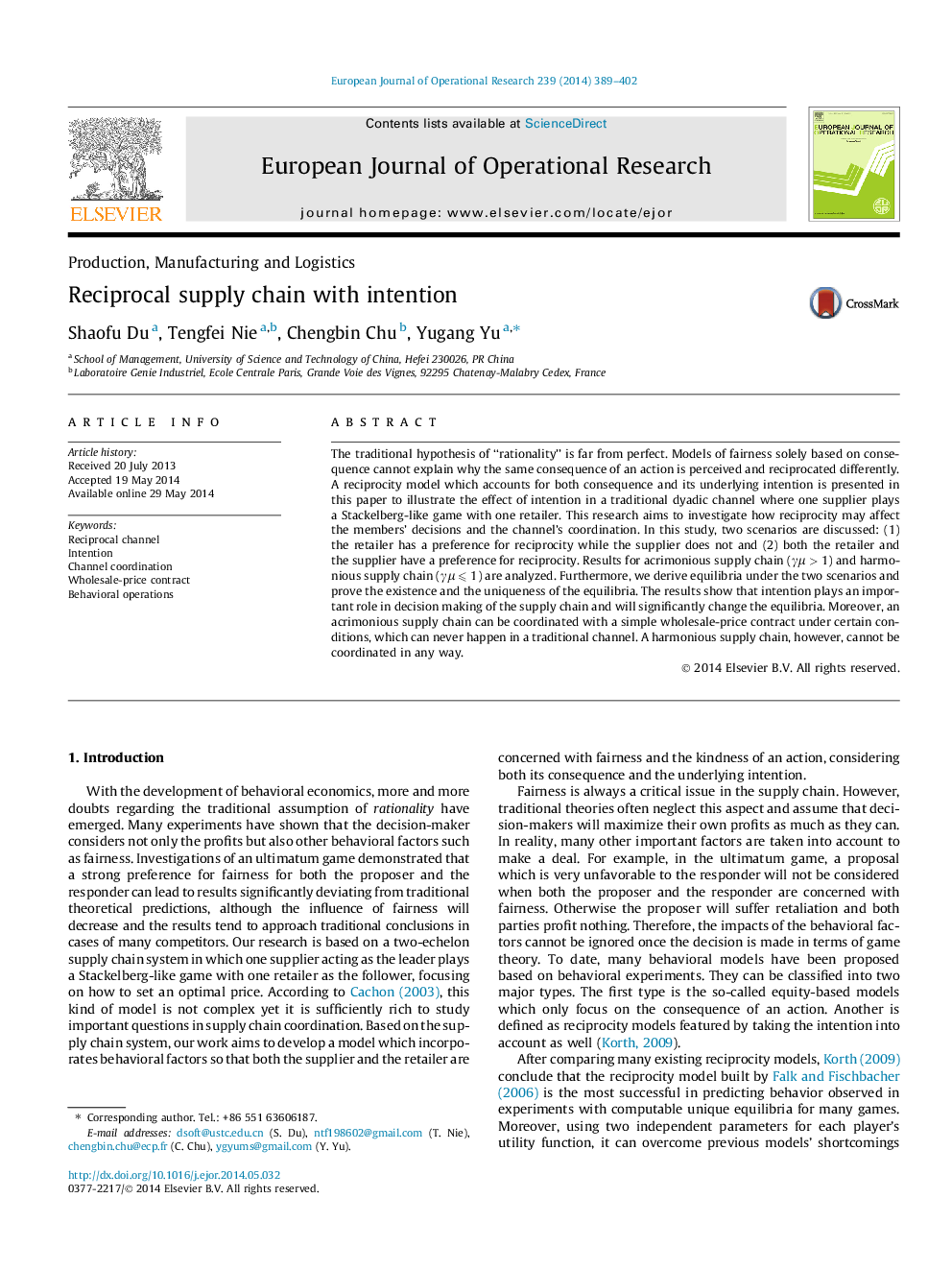| Article ID | Journal | Published Year | Pages | File Type |
|---|---|---|---|---|
| 476640 | European Journal of Operational Research | 2014 | 14 Pages |
•Reciprocal supply chain which considers both members’ intentions is investigated.•Reciprocal equilibrium is derived and is compared with that of fairness model.•The retail price may decrease with the increase of wholesale price in conflicting supply chain.•The supplier can use a simple wholesale price contract to coordinate a reciprocal channel.•The influence of intention on equilibrium may exceed that of consequence.
The traditional hypothesis of “rationality” is far from perfect. Models of fairness solely based on consequence cannot explain why the same consequence of an action is perceived and reciprocated differently. A reciprocity model which accounts for both consequence and its underlying intention is presented in this paper to illustrate the effect of intention in a traditional dyadic channel where one supplier plays a Stackelberg-like game with one retailer. This research aims to investigate how reciprocity may affect the members’ decisions and the channel’s coordination. In this study, two scenarios are discussed: (1) the retailer has a preference for reciprocity while the supplier does not and (2) both the retailer and the supplier have a preference for reciprocity. Results for acrimonious supply chain (γμ>1γμ>1) and harmonious supply chain (γμ⩽1γμ⩽1) are analyzed. Furthermore, we derive equilibria under the two scenarios and prove the existence and the uniqueness of the equilibria. The results show that intention plays an important role in decision making of the supply chain and will significantly change the equilibria. Moreover, an acrimonious supply chain can be coordinated with a simple wholesale-price contract under certain conditions, which can never happen in a traditional channel. A harmonious supply chain, however, cannot be coordinated in any way.
